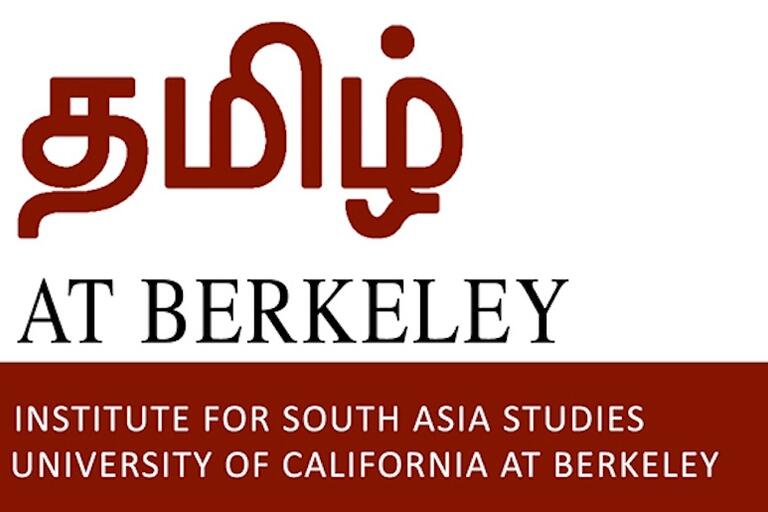 Tamil language and literature has been taught at Berkeley for almost fifty years now. Between 1973 and 2011, the Tamil Studies Program was carefully stewarded by Professor (Emeritus) George L. Hart III and Professor Kausalya Hart. The former is best known for such well known books as The Four Hundred Songs of War and Wisdom and The Poets of The Tamil Anthologies, as well as for his argument that Tamil is a classical language, a status that the Government of India formally accorded it on 18 September 2004. The latter wrote the definitive textbook for the teaching of Tamil in North America: Tamil for Beginners. Thanks to the Harts’ energy and dedication, UC Berkeley became a major center of undergraduate and graduate training in Tamil. Many of the Harts’ students went on to very successful careers in academia, government, journalism, medicine, and the other sciences.
Tamil language and literature has been taught at Berkeley for almost fifty years now. Between 1973 and 2011, the Tamil Studies Program was carefully stewarded by Professor (Emeritus) George L. Hart III and Professor Kausalya Hart. The former is best known for such well known books as The Four Hundred Songs of War and Wisdom and The Poets of The Tamil Anthologies, as well as for his argument that Tamil is a classical language, a status that the Government of India formally accorded it on 18 September 2004. The latter wrote the definitive textbook for the teaching of Tamil in North America: Tamil for Beginners. Thanks to the Harts’ energy and dedication, UC Berkeley became a major center of undergraduate and graduate training in Tamil. Many of the Harts’ students went on to very successful careers in academia, government, journalism, medicine, and the other sciences.
Attesting to the significant role played by the Harts in popularizing Tamil across North America, the Bay Area Tamil community endowed a Chair in Tamil Studies at UC Berkeley in the 1990s. Since then, the Tamil Chair has been used to fund a wide range of Tamil-specific programs, conferences, and research fellowships. Upon their retirement the Harts endowed two more funds to support undergraduate and graduate research work in Tamil Studies: the Hart Fellowship for Tamil Studies and the Bodha Pravaham Undergraduate Fellowship for Tamil Studies.
The teaching of Tamil language and culture is now entirely handled by Professor Vasugi Kailasam (who joined Berkeley in 2018) and Professor S. Bharathy (who joined in 2013). Under their leadership, Tamil classes are not only a permanent fixture in UC Berkeley’s curriculum but have also continued to grow in with more students enrolled than ever before and rising graduate student applications. Alongside these developments, the Tamil Studies program has been busy forging connections between UC Berkeley and organizations across North America to help popularize Tamil language learning as well as deepen historical, religious, literary and cultural interest in Tamil and Tamil Nadu as well as other Tamil diasporic spaces around the world. Classes currently taught at UC Berkeley include: Introductory, Intermediate and Advanced Tamil, classes on premodern and modern Tamil literature, and global Tamil literatures, history and culture.
The Arignar Anna Endowment for Tamil Studies
The Institute for South Asia Studies at Berkeley is raising a $1 million dollar endowment in the name of Arignar Anna to support Tamil-related activities on campus. With this endowment, we hope to have a bi-annual Tamil Studies conference, create a fellowship program for a Tamil Studies scholar from India, and support Tamil language classes. Success will allow Berkeley to do the following:
- Enable heritage and non-heritage students to take Tamil language classes
- Create a context in which heritage and non-heritage individuals can appreciate and participate in broader Tamil language and cultural activities
- Train the next generation of Tamil-focused scholars and academics
- Foster academic connections between Berkeley and Tamil-focused programs across the world
- Create new and innovative pedagogical materials to encourage the global study of Tamil
- Support on-the-ground research in Tamil Studies
- Increase Tamil language holdings in Berkeley’s world renowned South Asia collection
As we continue our work to build endowments to support language instruction at Berkeley, we are especially grateful to Dr. Vijay Janakiraman, representing Tamil Chair, Inc., for their incredibly generous gift of $250,000 in support of Tamil Studies at UC Berkeley.

Dr. & Mrs. Janakiram (holding check), with (from left) Prof. Bharathy, Mr. Abu Khan, Mr. K. Kumarappan, Prof. Sugata Ray, Prof. Munis D. Faruqui, Prof. Paula Varsano, & Dr. Sanchita Saxena.
Courses Offered
Tamil courses are open to students who know some Tamil. Classes are small and are customized to the needs and interests of students.
|
Introductory Tamil 1A |
|
|
Readings in Tamil 101A |
|
|
Seminar in Tamil Literature 210A |
|

